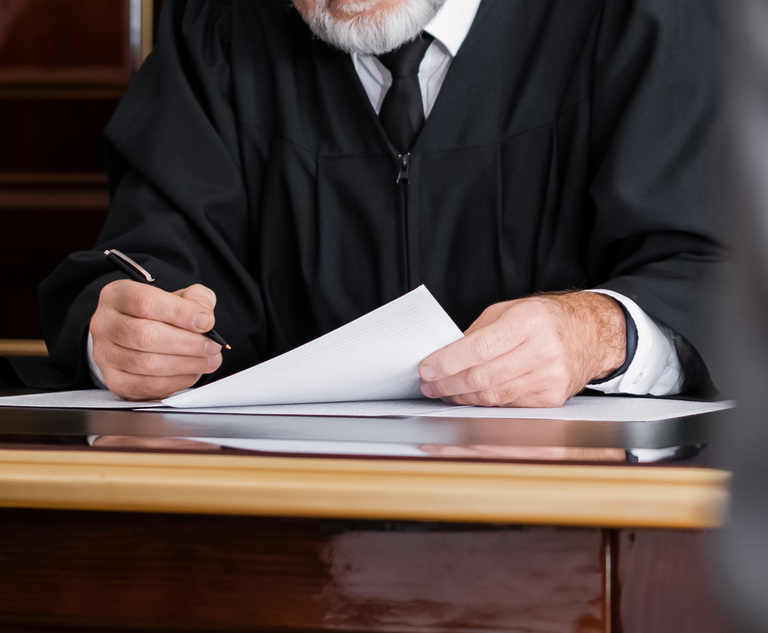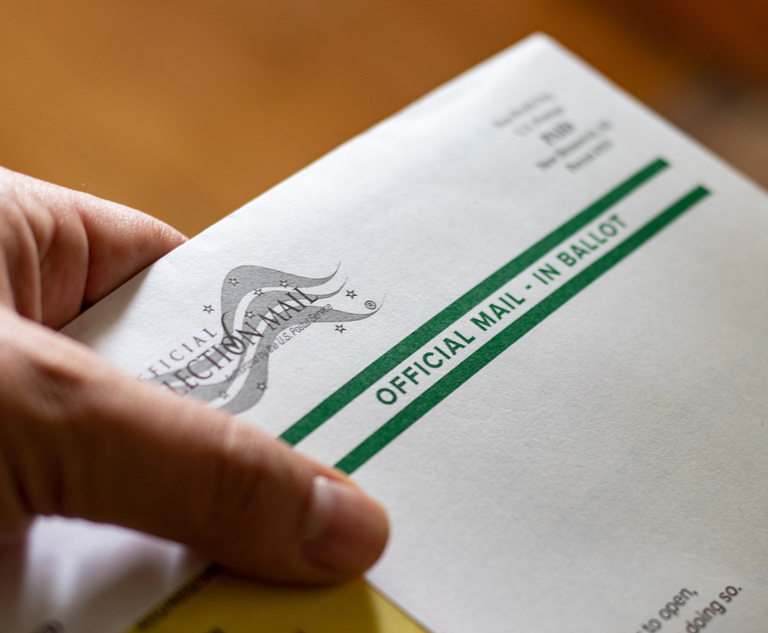Committee On Judicial Ethic

January 29, 2024 | New York Law Journal
Judicial Ethics Opinion 23-51A full-time judge may not request a fee waiver to enroll in online diversion courses that the prosecution seeks to require as a condition of a negotiated plea agreement.
By Committee on Judicial Ethics
3 minute read

January 28, 2024 | New York Law Journal
Judicial Ethics Opinion 23-50When a judge has reported an attorney to a disciplinary authority, is the judge disqualified from presiding over matters involving the attorney and/or the attorney's law partner?
By Committee on Judicial Ethics
2 minute read

January 15, 2024 | New York Law Journal
Judicial Ethics Opinion 23-49A judge may wear judicial robes when giving the keynote address at a public high school graduation.
By Committee on Judicial Ethics
3 minute read

January 14, 2024 | New York Law Journal
Judicial Ethics Opinion 23-48(1) A judge who formerly served as the town attorney is not disqualified from presiding in matters handled by a lawyer who previously served on the town board during the judge's tenure as town attorney, even if the lawyer plans to, or does, call the judge as a witness and/or seek the judge's emails and records concerning events that took place during that period. Rather, the judge may preside as long as the judge concludes they can be fair and impartial. (2) Where the lawyer also claims the existence of "extreme animosity" between them and the judge, recusal is not warranted where the judge has conducted the relevant interpersonal analysis and has determined that the judge can be fair and impartial.
By Committee on Judicial Ethics
6 minute read

January 11, 2024 | New York Law Journal
Judicial Ethics Opinion 23-47A town justice may accept an invitation from the town board to attend a town board meeting and address questions "for public information" concerning the court's procedures and limitations with respect to the collection of fees and court security, to help explain and clarify the court's role in these matters. The judge may not comment on any pending or impending cases and should be careful not to cast doubt on their integrity, impartiality, and independence in adjudicating matters that could result in revenue for the town.
By Committee on Judicial Ethics
5 minute read

January 10, 2024 | New York Law Journal
Judicial Ethics Opinion 23-46Where a judge's spouse is the Corporation Counsel and thus the head of the agency and/or attorney of record for the office: (1) In general, the judge must disqualify from any case involving the Corporation Counsel's office. However, this disqualification may be subject to remittal after full disclosure on the record, provided the judge's spouse remains permanently absent from the courtroom.
By Committee on Judicial Ethics
5 minute read

January 09, 2024 | New York Law Journal
Judicial Ethics Opinion 23-45Where a judge was represented by private counsel in a hybrid Article 78 proceeding that has since concluded, must the judge continue to disclose or disqualify in matters involving the judge's private attorneys and/or other members of their law firm?
By Committee on Judicial Ethics
2 minute read

January 08, 2024 | New York Law Journal
Judicial Ethics Opinion 23-44(1) For two years after the representation is completely terminated and all fees are paid, a judge is disqualified, subject to remittal, from all matters in which an attorney who personally represented the judge appears before the judge, and the judge must disclose the former representation when other attorneys from the same law firm appear before the judge.
By Committee on Judicial Ethics
7 minute read

January 07, 2024 | New York Law Journal
Judicial Ethics Opinion 23-43A judicial candidate may appear in joint campaign advertisements only with candidates who make up the slate of which the judicial candidate is a part. Candidates are on the same slate if they (a) have been endorsed by the same political party and/or (b) will appear on the same political party's ballot line.
By Committee on Judicial Ethics
6 minute read

January 04, 2024 | New York Law Journal
Judicial Ethics Opinion 23-42A part-time town justice may serve as a Nurse Clinic Manager for a county correctional facility in the same county, but must disqualify from any matter involving an inmate for whom the judge personally reviewed the inmate's medical file or otherwise personally participated in the inmate's care, either directly or as a supervisor.
By Committee on Judicial Ethics
4 minute read
More from ALM
- Legal Speak at General Counsel Conference East 2024: Match Group's Katie Dugan & Herrick's Carol Goodman 1 minute read
- Legal Speak at General Counsel Conference East 2024: Eric Wall, Executive VP, Syllo 1 minute read
- Legal Speak at General Counsel Conference East 2024: Virginia Griffith, Director of Business Development at OutsideGC 1 minute read



